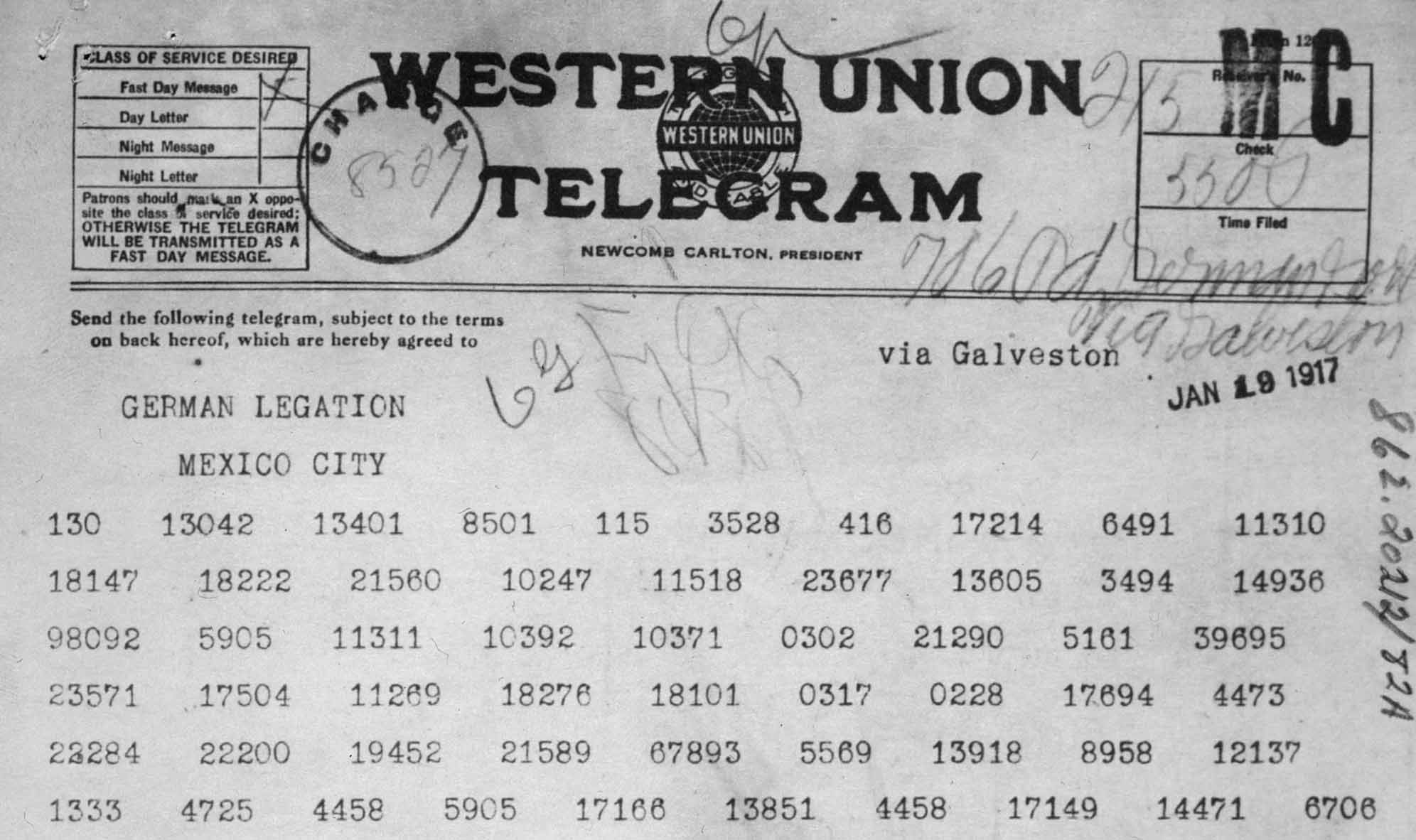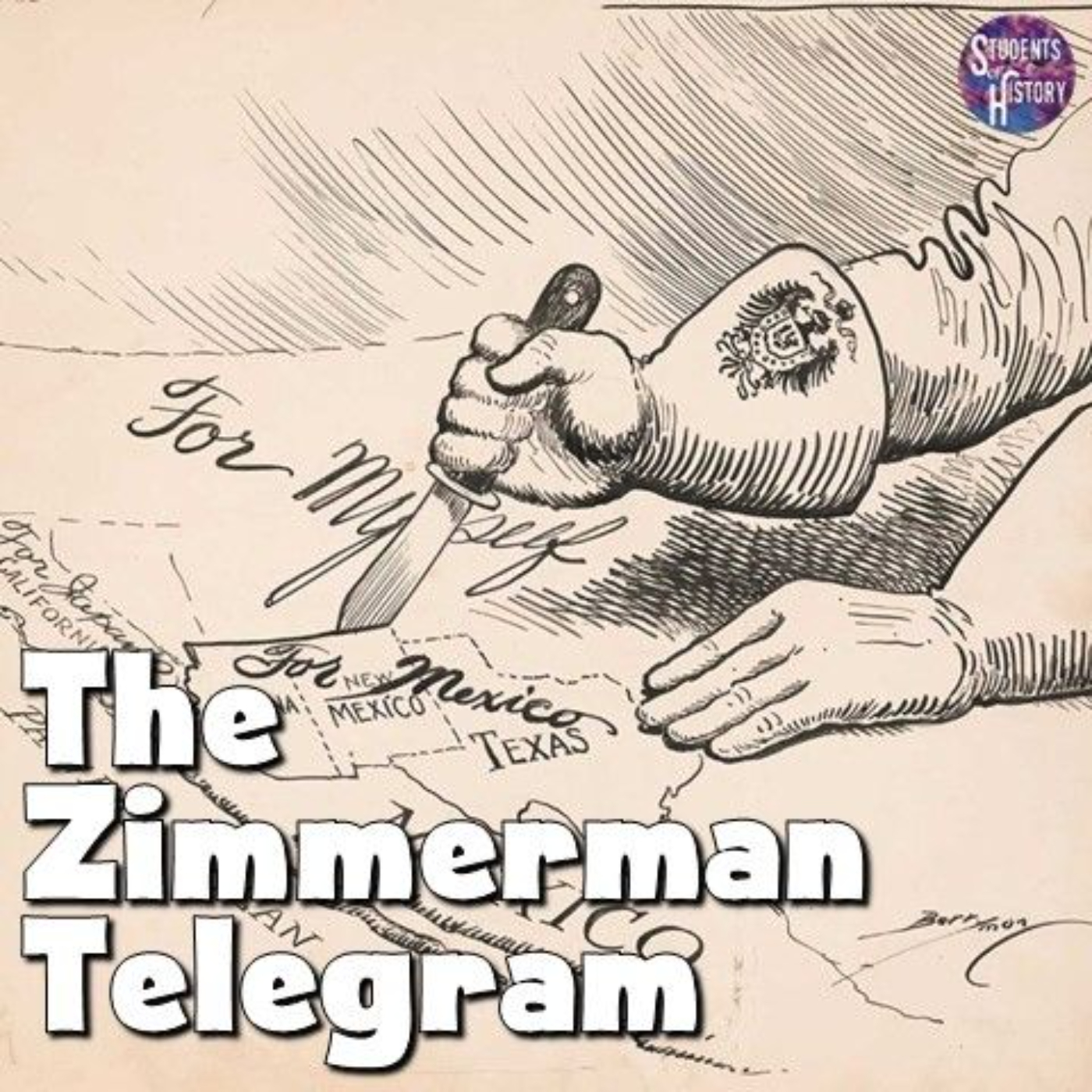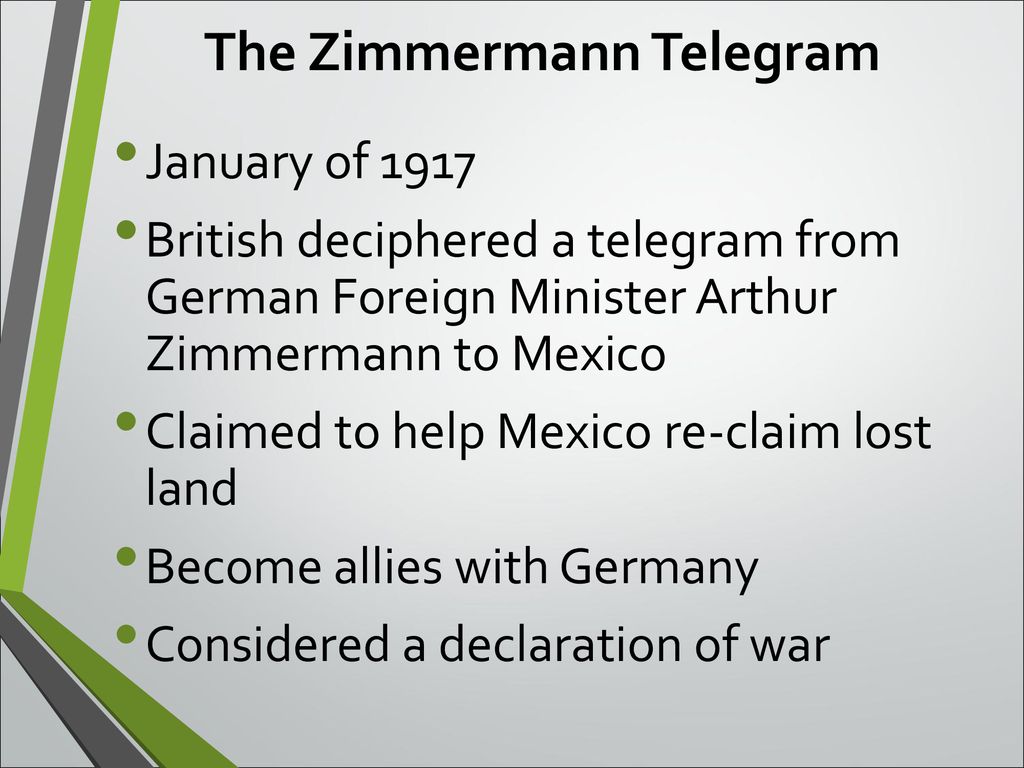The Zimmermann Telegram is one of the most fascinating communications in the history of World War I, dating back to January 16, 1917. Sent from the German Empire to Mexico, this secret message held the potential to shift the course of the war dramatically. It's not just a simple telegram; it's a crucial turning point that underscored how communication—often shrouded in secrecy—can impact global events. So, what was in this
Background of World War I

To truly appreciate the significance of the Zimmermann Telegram, it’s essential to understand the backdrop of World War I. This global conflict, which lasted from 1914 to 1918, involved a complex web of alliances and a myriad of nations, leading to unprecedented levels of destruction and loss of life. Here’s a simplified breakdown of the situation:
- Major Players: The war primarily pitted the Allies (including France, the British Empire, Russia, and later the United States) against the Central Powers (led by Germany, Austria-Hungary, the Ottoman Empire, and Bulgaria).
- Causes: Various factors contributed to the outbreak of the war, including nationalism, militarism, and imperialism. The assassination of Archduke Franz Ferdinand of Austria in 1914 triggered a series of events that led to mobilization and fighting.
- Warfare Tactics: The war was characterized by trench warfare—marked by a gruesome stalemate, where soldiers faced horrific conditions while fighting over minimal territory.
- Global Reach: While the main battles were fought in Europe, the effects of the war rippled through colonies in Africa and Asia, as well as impacting economies worldwide.
With millions of lives at stake and nations on the brink of turmoil, the stage was set for significant political maneuvers, one of which was the Zimmermann Telegram. Understanding the intricate details of this telegram ultimately reveals its profound impact on the United States' decision to enter the war, making it a pivotal moment in history.
The Content of the Zimmermann Telegram

The Zimmermann Telegram, a secret diplomatic communication sent by the German Empire to Mexico in January 1917, had significant implications for international relations during World War I. The telegram was authored by German Foreign Minister Arthur Zimmermann and was proposed as a strategy to distract the United States from entering the war.
In essence, the message contained several critical points:
- Alliance Proposal: Germany suggested that if the U.S. entered the war, Mexico should join the conflict on the side of the Central Powers. In return, Germany promised to support Mexico in reclaiming territories lost during the Mexican-American War, specifically Texas, New Mexico, and Arizona.
- Support for Japan: The telegram also hinted at the possibility of Japan joining Mexico in this endeavor, thereby suggesting a broader alliance against the United States.
- Encouragement of Conflict: Germany believed that by engaging Mexico in warfare against the U.S., it could buy time and resources to combat its European enemies.
The content of the Zimmermann Telegram was not just about military alliances; it revealed the desperate measures Germany was willing to take to sustain its war efforts. What made this communication even more dramatic was its interception by British intelligence, who deciphered it and ultimately passed it on to the U.S. government, setting the stage for a monumental shift in the war.
Reactions to the Telegram

The revelation of the Zimmermann Telegram sent shockwaves through both the United States and the world. When it was made public in March 1917, the reactions were immediate and profound.
First and foremost, American public opinion was charged with a mix of anger and fear. Many citizens viewed the telegram as a direct threat to American sovereignty. Here are some key reactions:
- Outrage: The idea that Germany was trying to persuade Mexico to attack the United States evoked feelings of betrayal and hostility towards Germany.
- National Unity: The telegram helped to unite various factions within the U.S. that had previously been divided about entering the war. Even those who were staunchly isolationist began to reconsider their stance.
- Political Pressure: U.S. President Woodrow Wilson, who had sought to maintain neutrality, faced mounting pressure from Congress and the public to take decisive action.
On an international scale, the telegram added to the growing perception of Germany as a threat not just to its enemies but also to neutral nations. This sentiment was echoed in places like Britain and France, where the message reinforced the idea that the Central Powers were willing to go to great lengths to achieve their goals.
Ultimately, the Zimmermann Telegram was pivotal in shifting American policy from neutrality to intervention, culminating in the entry of the United States into World War I in April 1917. The reactions it incited reflect how a single communication can alter the course of history in profound ways.
5. Impact on US Entry into World War I
The Zimmermann Telegram played a pivotal role in shifting American public opinion and policy regarding World War I. When the British decrypted this secret message sent by German Foreign Minister Arthur Zimmermann to Mexico, they quickly shared its contents with the United States. Imagine the shockwaves that rippled through the American government and society upon learning that Germany was trying to entice Mexico into an alliance against the U.S.!
Here are some key points highlighting the impact of the Zimmermann Telegram on U.S. entry into the war:
- Public Outrage: The revelation of the telegram stirred outrage among Americans. The idea that a foreign nation sought to collaborate with a neighboring country against the U.S. incited a wave of nationalism.
- Media Sensation: Newspapers seized on the story, splashing headlines across their columns. This extensive media coverage generated public anger and a desire for action.
- Diplomatic Shift: Before the incident, President Woodrow Wilson had maintained a neutral stance. The telegram forced him to reconsider his position, leading to a more aggressive diplomatic approach toward Germany.
- Mobilization for War: As public sentiment shifted, the U.S. began to mobilize its military and economic resources in preparation for war, marking a significant turning point in U.S. foreign policy.
Ultimately, the Zimmermann Telegram proved to be a catalyst that transformed isolationist sentiment into support for active involvement, propelling the United States into World War I on April 6, 1917.
6. Historical Significance and Legacy
The legacy of the Zimmermann Telegram extends far beyond its immediate consequences in World War I. Its historical significance can be categorized into several essential aspects:
- Redefining Alliances: The telegram underscored the intricate web of alliances and enmities that characterized the global landscape of the early 20th century. It highlighted how communication—or the lack of it—could reshape national partnerships.
- Intelligence and Espionage: The successful decryption of the Zimmermann Telegram showcased the importance of intelligence work during wartime. This incident cemented the role of intelligence agencies in global conflicts, setting a precedent for future war efforts.
- U.S. Global Role: The U.S. entry into World War I marked the beginning of its transformation into a global power. The outcome of the war established the United States as a key player in world affairs, a role it would continue to embrace in subsequent decades.
- Cultural Impact: The Zimmermann Telegram entered the annals of popular culture, inspiring numerous books, documentaries, and films. It serves as a reminder of how critical events can alter public perception and national destiny.
In summary, the Zimmermann Telegram was more than just a diplomatic misstep—it was a significant event that reshaped international relations, intensified engagement in global conflicts, and left an enduring legacy that shapes historical interpretations even today.
Exploring the Zimmermann Telegram and Its Historical Significance
The Zimmermann Telegram was a secret diplomatic communication sent by the German Empire to Mexico on January 16, 1917, during World War I. Authored by German Foreign Minister Arthur Zimmermann, the telegram aimed to propose a military alliance between Germany and Mexico in the event that the United States entered the war against Germany. This covert message had far-reaching effects on WWI and the United States' eventual involvement in the conflict.
The contents of the telegram suggested that if Mexico joined forces with Germany, Germany would assist Mexico in recovering territories that the United States had acquired, specifically Texas, New Mexico, and Arizona. The interception and decryption of the message by British intelligence were pivotal in revealing Germany’s intentions and played a crucial role in altering the tide of the war.
Below are some significant points regarding the Zimmermann Telegram and its implications:
- Interception: The British cryptography team successfully intercepted and decrypted the message.
- Public Impact: Once made public, the telegram fueled anti-German sentiment in the United States.
- U.S. Entry into WWI: The telegram was one of the key factors that prompted the U.S. to declare war on Germany on April 6, 1917.
- Diplomatic Relations: It marked the deterioration of U.S.-German diplomatic relations.
In summary, the Zimmermann Telegram is not just a document but a historical turning point that significantly influenced the course of World War I by catalyzing the United States' involvement in the war, thus altering the global balance of power.
 admin
admin








